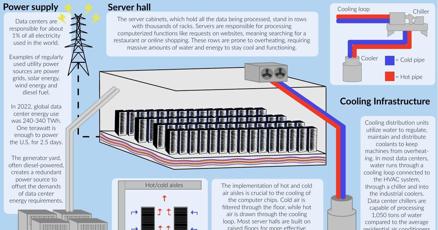Silicon Valley's AI Gambit: Why Missouri Might Hold the Key to Tech's Next Frontier

Missouri stands at the crossroads of technological innovation and environmental challenge as the rapid expansion of data centers fuels artificial intelligence's growing appetite for computing power. The state is witnessing an unprecedented surge in data center development, which experts warn could significantly escalate carbon emissions in the coming years.
These massive computing facilities, essential for powering advanced AI technologies, are projected to dramatically increase Missouri's carbon footprint. As tech giants and startups alike race to build infrastructure capable of supporting increasingly sophisticated AI systems, the environmental implications are becoming increasingly clear.
The push for data center construction represents a complex balancing act between technological progress and ecological responsibility. While these centers are crucial for driving innovation in artificial intelligence, they also consume enormous amounts of electricity, predominantly generated from fossil fuel sources. This energy-intensive process translates directly into higher greenhouse gas emissions.
Local policymakers and environmental advocates are now grappling with the challenge of supporting technological advancement while simultaneously maintaining meaningful carbon reduction goals. The potential increase in emissions underscores the urgent need for sustainable data center design and renewable energy integration.
As Missouri positions itself at the forefront of the AI revolution, the state must carefully navigate the delicate intersection of technological innovation and environmental stewardship.
